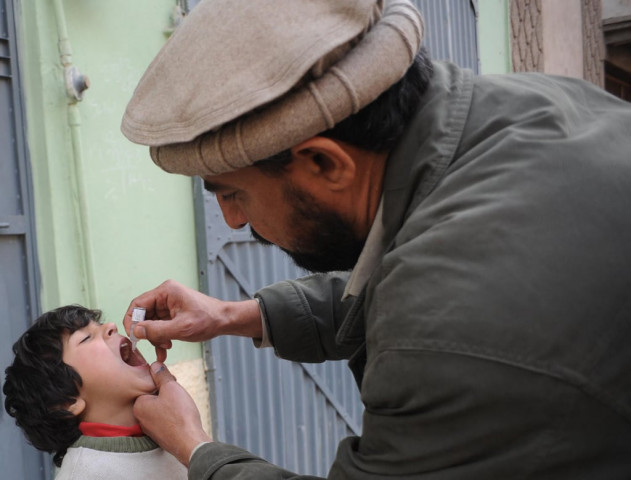Controlling the spread: Disease transmission trends go un-monitored in the country
IDSRS integral to combating disease outbreak

IDSRS integral to combating disease outbreak. PHOTO: AFP
Integrated Disease Surveillance and Response System implies systematic and real time data collection and analysis helping in early outbreak detection and timely response at all levels.
Earlier there was a Weekly Epidemiological Bulletin – Disease. It was an early warning system and response in Pakistan which was established first in the aftermath of the earthquake of October 2005 and then after 2010 floods, run by the World Health Organization (WHO) but recently it has been discontinued.
Talking to The Express Tribune a senior official at the National Institute of Health (NIH) who wished not to be named said every year there is seasonal outbreak of infectious diseases and for that there is a need to have an integrated surveillance system to chalk out strategies for their prevention.
The official said about two years ago, to lead this effort, NIH board of governors approved establishment of a new Surveillance and Response Division at NIH by merger of existing units doing relevant work.
“However only one BS-20 post of chief was required to be created that has not been done to date. This seriously threatens Pakistan’s efforts to fulfill its obligations under International Health Regulations (IHR) but who cares,” he said.
“Almost every year there are numerous cases of Congo, dengue fever, and measles that are reported in Pakistan which mostly result in death. Therefore timely reporting of the case can help curtail the spread of the disease and save many lives,” he said.
The official recalled that recently a man from Afghanistan died in a private hospital of Islamabad from Congo fever but due to poor surveillance system it was lately reported with a delay in action to control its spread. In a similar instance in Karachi where nine deaths have been reported from Naegleria, these lives could have been easily saved had this system been in place.
Meanwhile talking to The Express Tribune, Professor Javed Akram, Vice President Shaheed Zulfikar Ali Bhutto Medical University, PIMS said Pakistan badly needs a mechanism for timely case detection, reporting and response system for communicable disease.
When contacted Sheikh Ayub, secretary health Ministry of National Health Services, Regulation and Coordination (NHSRC), denied that the federal government lacked this surveillance mechanism.
He said there is a Field Epidemiology and Laboratory Training Program at federal level which trains provincial nominees on disease surveillance and response. Besides there are disease surveillance systems at district level to gather data, he said.
Published in The Express Tribune, May 28th, 2015.



















COMMENTS
Comments are moderated and generally will be posted if they are on-topic and not abusive.
For more information, please see our Comments FAQ